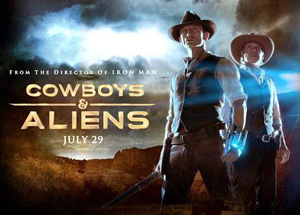amazing grace
TOWARD THE END of the film documenting the performance of Aretha Franklin’s album Amazing Grace, the singer sits at a church piano. Like so many times in her childhood, she begins playing — gradually, almost tentatively — the opening chords to “Never Grow Old.” It was her first single, released when she was 14. As she sings of “a land where we’ll never grow old,” built by “Jesus on high,” folks in the audience — including gospel pioneer Clara Ward — cannot help but get up and dance. “Never, never never” — and then a Franklin trademark: mmm-mmm-mmm — “never grow old,” she testifies. You believe her.
This year, Aretha’s Amazing Grace turned 50. The album — recorded live at New Temple Missionary Baptist Church in Los Angeles with James Cleveland’s Southern California Community Choir and one of the greatest backing bands in all of pop music history — blends and crosses boundaries of genre, generation, race, and class. In 1972, Amazing Grace was not just a return to Aretha’s roots, but a vision of a future — one rooted in the Black experience in the U.S.
The liner notes credited Gene Paul as “assisting engineer.” Today, he is a legendary producer. Paul traces the genesis of Amazing Grace to Aretha’s 1972 record Young, Gifted and Black. That album’s title track, penned and first sung by Nina Simone, was a breakthrough in the civil rights and Black pride movements. “In the whole world you know / there’s a million boys and girls / who are young, gifted and Black,” the lyrics proclaim. While recording Young, Gifted and Black, Paul told Sojourners, Aretha began to conceptualize the live recording of a gospel album as a follow-up. When she thought of the potential project, Paul said, she “was smiling, captivated.” To Paul, there is a clear through line from Young, Gifted and Black to Amazing Grace: The former spoke to the contemporary Black political moment; the latter looked back in time while pulling her spiritual and cultural roots into the present. Both pointed the way to a Black future that was joyous and free.
I went to the theater alone, feeling small and bereft. At the urging of a friend, I went to see Marcel the Shell With Shoes On. I felt my smallness increase as the theater darkened. Then suddenly, there was Marcel, a one-inch-tall shell, blinking back at me. Marcel is soft-spoken, inquisitive, and wears pink shoes.
“This magnificent grace, this expansive grace, this ‘Amazing Grace’ calls me to reflect. And it calls me to pray. It calls me to ask God for forgiveness, for the times that I’ve not shown grace to others, those times that I’ve fallen short.”
Pipeline projects are moving forward across the country, but a group of tuneful nuns is working to make sure they don’t succeed.
The Sisters of Loretto in Marion County, Kentucky have lived on their rural acreage since the 1800s, serving the poor and enjoying the wide open spaces and forest trails of their home.
With a fracking company proposing a pipeline for pressurized natural gas chemicals through their land, the sisters have sprung into action to protect what they see as their “holy land.” They have refused to allow the fracking company to survey their land for pipeline construction, citing past pipeline explosions and the risk of contamination.
The sisters appeared at a public hearing over the proposed pipelines, singing “Amazing Grace” until they were asked to be quiet. Their unexpected activism has gained them attention locally and across the internet (you can meet the sisters by watching this video.)

Evangelicals had always seemed like the "other" Christians. They were the ones who didn't celebrate Advent or baptize babies. They were the ones who went colleges that required pledges not to drink, smoke or dance. They were the ones who frowned upon evolution or "free-thinking."
As a child of the 1970s and '80s, I saw evangelicals as politically and socially conservative -- ever skeptical of culture and worried about what we were reading and watching. They bobbed for apples at "Harvest" parties instead of trick-or-treating on Halloween. They were the ones telling Kevin Bacon he couldn't be footloose and fancy free -- or maybe those were "fundamentalists." Did it matter? Was there even a difference?
Sojourners has always tried to understand and advocate for "biblical politics." But what does that mean now, especially as we approach another major election?
I was talking the other day to a Christian leader who has given his life to working with the poor. His approach is very grassroots -- he lives in a poor, virtually all-minority community and provides basic services for low-income people. He said, "If you work with and for the poor, you inevitably run into injustice." In other words, poverty isn't caused by accident. There are unjust systems and structures that create and perpetuate poverty and human suffering. And service alone is never enough; working to change both the attitudes and institutional arrangements that cause poverty is required.
 Americans have a hard time knowing how to respond to the sins of our colonial past. Except for a few extremists, most people know on a gut level that the extermination of the Native Americans was a bad thing. Not that most would ever verbalize it, or offer reparations, or ask for forgiveness, or admit to current neocolonial actions, or give up stereotyped assumptions -- they just know it was wrong and don't know how to respond. The Western American way doesn't allow the past to be mourned or apologies to be made. Instead we make alien invasion movies.
Americans have a hard time knowing how to respond to the sins of our colonial past. Except for a few extremists, most people know on a gut level that the extermination of the Native Americans was a bad thing. Not that most would ever verbalize it, or offer reparations, or ask for forgiveness, or admit to current neocolonial actions, or give up stereotyped assumptions -- they just know it was wrong and don't know how to respond. The Western American way doesn't allow the past to be mourned or apologies to be made. Instead we make alien invasion movies.





